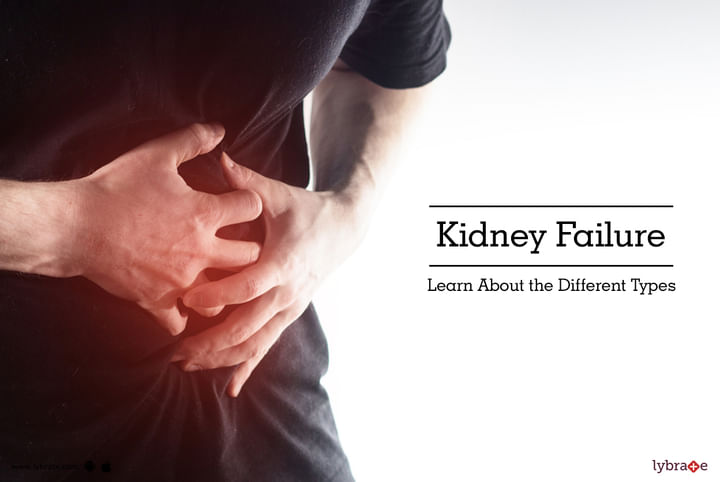Kidney Failure: Learn about the different types
Kidneys are part of the excretory system, they filter the waste from blood. Any renal infection or injury can lead to kidney failure. In case of kidney failure, waste starts to accumulate in your blood, which can be harmful to the other organs.
What are the symptoms of kidney failure?
Symptoms of kidney failure appear slowly and may often remain unnoticed for a long period. However, a few symptoms that can help you know about your condition are:
-
Weakness
-
Breathlessness
-
Fatigue or lethargy
-
Water retention or swelling
-
Feeling nauseated frequently
-
Pain or pressure in chest
Different types of kidney failure
Kidney failure can be of two types, depending upon the duration and cause of the disorder.
-
Acute kidney failure or acute renal failure (ARF): It usually arises if there is a problem in the blood supply or due to disturbed urine flow. ARF may develop over a few days or weeks. In most of the cases, it is reversible and the functioning of the kidneys can be restored
-
Chronic kidney failure or chronic kidney disorder (CKD): It usually results from uncontrolled diabetes, hypertension and chronic glomerulonephritis. CKD develops overtime and is classified in different stages depending upon the functioning of kidneys. This is checked by Glomerular filtration rate (GFR). GFR is the rate at which kidneys filter excess wastes and fluids.
Stages of kidney failure
Stage 1: There are usually no symptoms of onset of kidney disease. A slight kidney damage with normal or increased filtration rate is observed. GFR at this stage is > 90
Stage 2: There is a mild decrease in kidney function and is also called as renal insufficiency. GFR reduces to 60 to 89.
Stage 3: Further deterioration in kidney function can be observed. GFR reduces to 30 to 59.
Stage 4: It is marked by a severe decrease in kidney function. GFR is reduced to 15 to 29. Water retention, is very common during this period, due to poor filtration rates.
Stage 5: It is also called as end-stage kidney disease. GFR is reduced to < 15. Dialysis and kidney transplant are the two line of treatments that are followed at this stage.
Regular health check-ups along with a healthy lifestyle are recommended to reduce the risk of kidney disorders, especially if you have any other metabolic disorder.


+1.svg)
